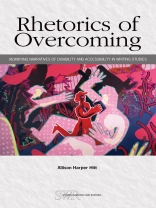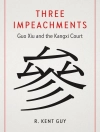Rhetorics of Overcoming addresses the in/accessibility of writing classroom and writing center practices for disabled and nondisabled student writers, exploring how rhetorics of overcoming—the idea that disabled students must overcome their disabilities in order to be successful—manifest in writing studies scholarship and practices.
Allison Harper Hitt argues that rewriting rhetorics of overcoming as narratives of “coming over” is one way to overcome ableist pedagogical standards. Whereas rhetorics of overcoming rely on medical-model processes of diagnosis, disclosure, cure, and overcoming for individual students, coming over involves valuing disability and difference and challenging systemic issues of physical and pedagogical inaccessibility.
Hitt calls for developing understandings of disability and difference that move beyond accommodation models in which students are diagnosed and remediated, instead working collaboratively—with instructors, administrators, consultants, and students themselves—to craft multimodal, universally designed writing pedagogies that meet students’ access needs.
About the CCCC Studies in Writing & Rhetoric (SWR) Series:
In this series, the methods of studies vary from the critical to historical to linguistic to ethnographic, and their authors draw on work in various fields that inform composition—including rhetoric, communication, education, discourse analysis, psychology, cultural studies, and literature. Their focuses are similarly diverse—ranging from individual writers and teachers, to classrooms and communities and curricula, to analyses of the social, political, and material contexts of writing and its teaching.
เกี่ยวกับผู้แต่ง
Allison Harper Hitt is an Assistant Professor of Rhetoric and Composition in the English Department at Ball State University. She received a Ph.D. in Composition and Cultural Rhetoric from Syracuse University and an M.A. in Professional Writing and Editing from West Virginia University.Her research is focused on how disability is constructed and mediated through technology, whose stories and bodies we value within our disciplinary histories, and how we can work as a community to theorize and enact more socially just pedagogical practices. Her research addresses how theories of multimodality and Universal Design can inform critical and accessible pedagogies.












